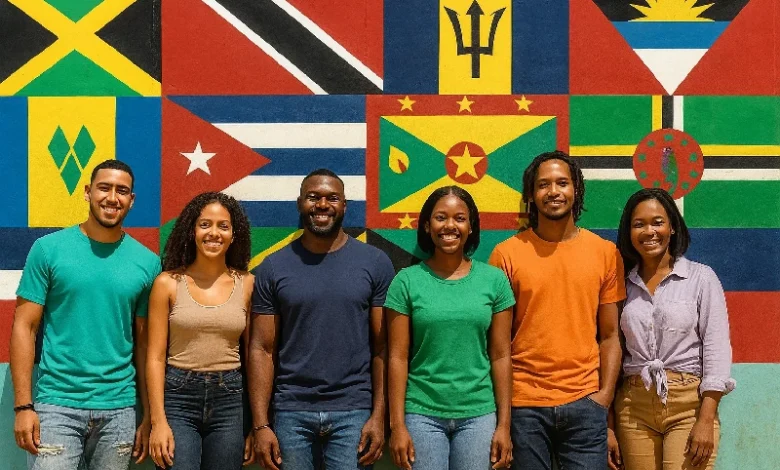CARICOM Free Movement & Dominica

CARICOM Free Movement refers to the right of eligible CARICOM nationals to move and work freely across participating Caribbean states. For Dominica, a founding member of the Caribbean Community, this framework represents a key pillar of regional integration and economic cooperation. The system facilitates not just the transfer of labour, but also the wider goal of Caribbean unity, allowing qualified Dominicans to live, work, and establish business enterprises in other CARICOM territories under defined protocols.
This right is not unlimited but is governed by specific categories, legal procedures, and mutual obligations between member states. Dominica ratified the Revised Treaty of Chaguaramas and continues to uphold it through national laws and active regional cooperation.
Objectives and Legal Foundations of CARICOM Free Movement
The Free Movement regime is a core feature of the CARICOM Single Market and Economy (CSME), designed to deepen integration among member states through the elimination of barriers to trade, services, labour, and capital. The Revised Treaty of Chaguaramas provides the legal basis for this arrangement, mandating cooperation and economic alignment across the region.
Its main objectives include the right of skilled CARICOM nationals to seek and engage in gainful employment in other member states without the need for a work permit, the mutual recognition of qualifications and professional credentials, and the facilitation of social security benefits portability. It also ensures the free movement of entrepreneurs, university graduates, media workers, sportspersons, artists, and domestic workers, among others.
To operationalize this, participating states, including Dominica, issue Certificates of Recognition of CARICOM Skills Qualification to eligible citizens. These certificates guarantee entry and work rights in another member state for a period of six months, with the possibility of indefinite stay upon verification.
The regime also incorporates rights to establish a business, provide services across borders, and transport goods and persons under liberalized customs and immigration procedures.
Dominica’s Participation in the Free Movement Regime
Dominica has been among the more proactive states in advancing the CARICOM Free Movement agenda. It has fully embraced the issuance and acceptance of skills certificates and has been instrumental in advocating for inclusive eligibility, particularly for artisans, domestic workers, and security guards. In practice, Dominican nationals benefit from both movement and employment access across participating territories, with the opportunity to tap into larger labour markets in Barbados, Trinidad and Tobago, Saint Lucia, and elsewhere.
Dominica’s Ministry of National Security and Legal Affairs, alongside the Labour Division and the regional liaison office, oversees the processing of applications, issuance of certificates, and local recognition of CARICOM qualifications. Institutions like the Dominica State College and the TVET Council help align local training with regional standards to ensure graduates are eligible for mobility.
At the immigration level, Dominica provides six-month definite entry to qualified CARICOM nationals pending employment confirmation. In return, Dominican authorities are obligated to uphold the principles of non-discrimination, due process, and regional reciprocity.
Benefits and Limitations for Dominicans
The main benefit to Dominicans lies in employment flexibility. A Dominican university graduate with a valid skills certificate can migrate to another CARICOM country, bypass local work permit systems, and legally take up employment. This is particularly advantageous for professionals in medicine, education, engineering, creative industries, and hospitality.
However, there are also structural limitations. The free movement of unskilled labour is not currently permitted, and some member states enforce cumbersome verification processes. There have also been periodic delays and inconsistencies in the recognition of certificates and enforcement of CSME provisions.
Despite these challenges, Dominica has consistently lobbied for broader access and simplification of procedures at the Heads of Government Meetings and within the CARICOM Council for Human and Social Development (COHSOD). The country also aligns its national training and labour legislation with CARICOM decisions, facilitating smoother implementation of CSME standards.
The Broader Implications for National Development
For Dominica, CARICOM Free Movement serves dual purposes: expanding employment pathways for citizens while attracting regional talent in needed sectors like construction, education, and skilled trades. In moments of post-disaster reconstruction, for example, the regime has allowed for the rapid inflow of regional professionals to assist national rebuilding efforts without bureaucratic hindrance.
On a political level, Dominica’s active support of free movement reflects its long-standing commitment to regionalism and solidarity. It is often cited among OECS countries for its progressive stance on mobility, making it a model within the subregion.
As CARICOM continues to deepen integration through initiatives like the CARICOM Identity Card, the Single Domestic Space, and cross-border digital platforms, Dominica’s role remains central, not only as a participant, but as a consistent voice for inclusivity and mutual benefit.




